Developing Trust to Foster Positive Engagement in Creative Practice Research through Film
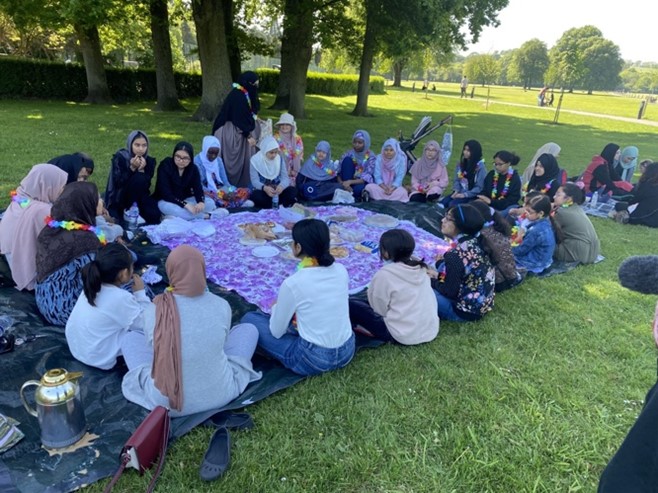
Developing trust has been an essential aspect of ensuring that research participants are comfortable telling their stories, and that they understand that their perspectives will be considered and shared respectfully. As Wilkins (2018 p.1) explains, “Trust is essential to building and maintaining mutually respectful relationships,” especially as there is typically an imbalance of power between the researcher and community members. Moreover, participants “rely on researchers’ honesty and willingness to protect them from harm” (Ibid).
As a way of gaining trust and showing the participants in the Co-POWeR research that the overarching aim is to give them a voice so that they can share their experiences of the COVID-19 pandemic, time has been spent engaging and supporting community groups to co-create their stories. For example, young people from the Tiger Bay Amateur Boxing Club and St. Joseph’s Boxing Gym have taken part in focus group interviews and discussions where they shared their experiences of the challenging times during lockdown, including issues around police stop and search. They also freely expressed their feelings and perspectives on how boxing and related physical activities have helped to promote their physical and mental wellbeing.
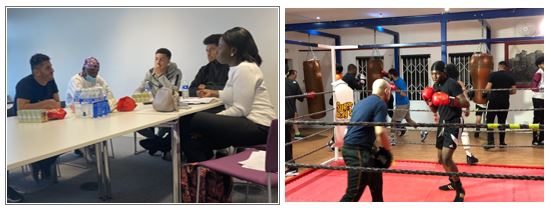
Prior to the focus groups, visits were made to the boxing clubs over a period of several months to establish and develop mutual relationships of trust and support. This included discussions about educational pathways and funding opportunities to enable the clubs to expand their provision to the many young people in need of spaces of leisure and safety. The relationship between the young people, the coaches and the research team have developed well to the point where they have agreed to be filmed during their physical activities, as well as being interviewed to share their personal experiences. This is a high level of participant engagement that would not be possible without trust, respect and positive relationships.
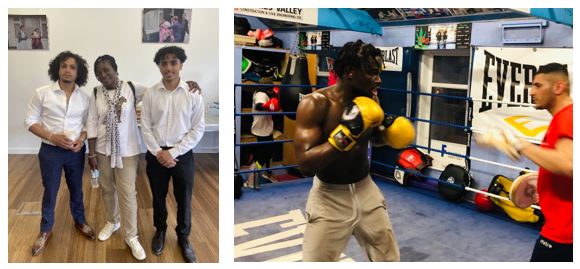
The approach taken is Community Based Participatory Research, whereby research outputs are co-created or co-constructed to benefit the community, and as part of knowledge production (Jagosh 2015); including being open and honest with community groups that are rarely seen due to cultural expectations, and engaging them in “culturally and logistically appropriate research” (Jagosh 2015 p.2).
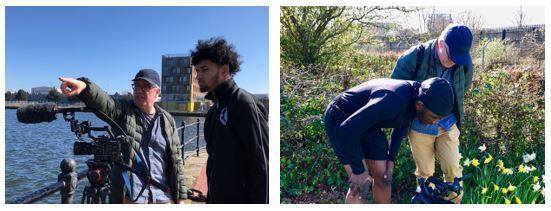
Another example is the creative research conducted with Roots - a Muslim girls’ creative arts group, as different participants have had specific requirements regarding filming, with some of the girls enthusiastic about being filmed and sharing their creative interests and artwork, while others have been more reticent, agreeing to be filmed but from angles where their faces are not shown. By developing trust and reassuring the participants that they are in control of what is filmed and how they wish to be portrayed, a greater level of participation has ensued, with the girls trusting that their specific needs will be met by the creative research team.
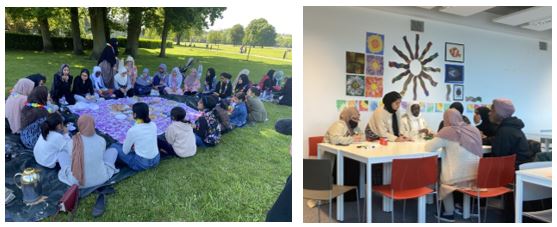
The high level of trust that research participants have in the Co-POWeR project and the research teams has not only motivated them to engage in focus group interviews and discussions, but has also given them the confidence to actively collaborate in the process of creating documentary films, in which they have been honestly sharing their personal experiences about the impact of the pandemic on their lives and communities. The community groups described above are just a few examples of where trust has played an essential role in the continued participation of BAMEFC (Black, Asian and Minority Ethnic families and communities) in the Co-POWeR project and events. In summary, our creative interactions with these diverse groups and individuals, and the processes of co-creating, have been built around ‘trust’, which has facilitated the fieldwork activities and the collection of data, especially the way research participants have been choosing to share and represent their personal experiences in the documentary films.
References
Jagosh, J. Bush, P. L. Salsberg, J. Macaulay, A. C. Greenhalgh, T. Wong, G. and Pluye, P. (2015). A realist evaluation of community-based participatory research: partnership synergy, trust building and related ripple effects. BMC public health, 15(1), 1-11.
Wilkins, C. H. (2018). Effective engagement requires trust and being trustworthy. Medical Care, 56(10 Suppl 1), S6.
Blog post by Wendy Booth
